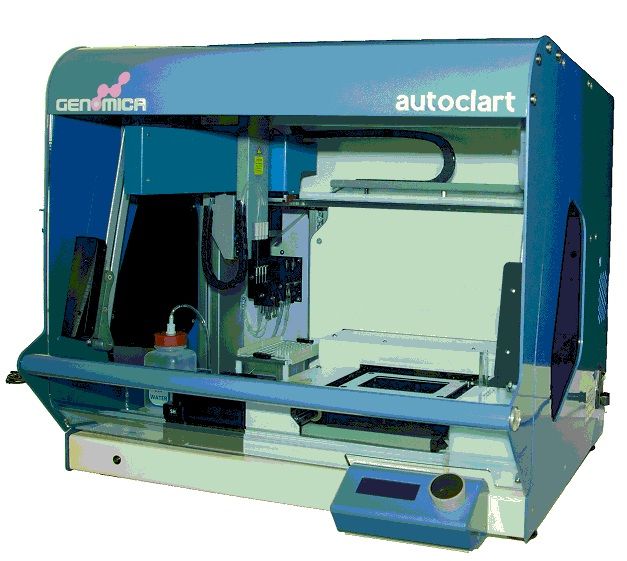 A Comparative Study of ALK and ROS Genes Rearrangements Among IHC/FISH/CLART in NSCLC.
A Comparative Study of ALK and ROS Genes Rearrangements Among IHC/FISH/CLART in NSCLC.2018 ASCO Annual Meeting .
Author(s): Maria Cortes-Sempere, Maria Jesus Sanz, Nuria Manjon, Marta Sanchez-Muñoz, Rosa Somoza, Yolanda Ruano, Irene Sansano, Javier Hernandez-Losa, Jose Luis Rodriguez-Peralto, Maria Luisa Villahermosa; GENOMICA SAU, Madrid, Spain; Genomica SAU, Madrid, Spain; Pathology Department, Vall d'Hebron University Hospital, Barcelona, Spain; 12 de Octubre Universitary Hospital, Madrid, Spain; Pathological Anatomy Service, Hospital Doce de Octubre, Madrid, Spain.
Abstract Disclosures
Abstract:
Background: With the launching of the new GENOMICA’s kit for the detection of ALK and ROS1 genes rearrangements in non-small cell lung cancer (NSCLC), a comparative study with the current two routine diagnosis techniques, immunohistochemistry (IHC) and fluorescent in situ hybridization (FISH) was performed. CLART CMA ALK-ROS.1 detects the main chromosomal translocations of ALK gene with EML.4 and ROS1 gene with SDC4, CD74 and SLC34A2 in patients with lung cancer. Starting material is extracted RNA from lung biopsies in the form of formalin-fixed paraffin-embedded tumor tissue (FFPE). Detection is based on our CLART® technology: End-point Multiplex PCR amplification, followed by visualization in low-density microarray. The objective of this study is to determine the diagnostic validity of the GENOMICA CLART system as a routine technique in the detection of these rearrangements in clinical practice.
Methods: Two Spanish hospitals participated in this clinical study: Hospital Universitario 12 de Octubre from Madrid and Hospital Vall d’Hebron from Barcelona. 86 FFPE tissue samples from NSCLC were obtained by surgery, bronchoscopy or biopsy-puncture. They were assessed with IHC or/and FISH and with CLART system in parallel. The discrepancies were analysed by NGS with the Oncomine™ Focus Assay panel from Thermo Fisher Scientific.
Results: 6 out of 86 samples were positive with the routine techniques, 1 positive for ROS1 and 5 for ALK rearrangements. Out of these 6 samples, 3 were positive and 3 were negative with CLART system. The 3 discrepancies were analysed by NGS and 1 resulted positive for a ROS1 variant that GENOMICA kit does not detect and the other 2 discrepancies were WT.
Conclusions: Comparing the results obtained from CLART system and IHC/FISH we have a 96.5% of concordance, but after the discrepancies analysis by NGS we could observe that the results of the routine techniques had 3 false negatives and that CLART system have a 100% of sensitivity and specificity. CLARTCMA ALK-ROS.1 may provide an effective and accurate alternative to FISH/IHC testing for the detection of known EML4-ALK and ROS1 rearrangements in clinical diagnostic settings, being a method easy to perform and to be integrated into clinical routine.
